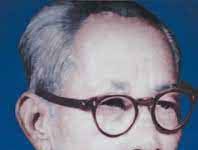King Abdulaziz Al Saud | Brief Biography
King Abdulaziz Al Saud
King Abdulaziz Al Saud was the first monarch of Saudi Arabia and is often referred to as the “Founder of the Kingdom”. He was born in Riyadh in 1880 and died in 1953. Throughout his reign, he worked tirelessly to unify the various tribes of the Arabian Peninsula and establish the modern state of Saudi Arabia.
King Abdulaziz Al Saud was the son of King Abdul Rahman, who ruled over the central region of Nejd in the late 19th and early 20th centuries. Abdulaziz grew up in a time of great political turmoil in the Arabian Peninsula, and he was influenced by the ideas of Arab nationalism and Islamic revivalism. He spent much of his early life as a tribal leader, fighting against rival tribes and seeking to unify the region under his rule.
In 1932, King Abdulaziz succeeded in establishing the modern state of Saudi Arabia and declared himself the king. He faced many challenges during his early years as ruler, including opposition from neighboring states, internal tribal conflicts, and economic difficulties. Despite these challenges, King Abdulaziz was able to strengthen the central government, establish a strong military, and create a stable, unified country. He also made efforts to modernize the country, introducing new infrastructure, education, and health care systems.
King Abdulaziz Al Saud was a devout Muslim and an advocate for the spread of Islam. He made several important pilgrimage trips to Mecca, and he worked to improve the status of the holy city and the lives of its residents. He was also instrumental in the development of the Islamic holy cities of Medina and Mecca, and he helped establish the Muslim World League, an organization dedicated to promoting Islamic unity and cooperation.
King Abdulaziz was known for his wisdom, leadership, and political acumen. He was able to maintain the loyalty of his subjects through a combination of religious devotion, strategic alliances, and effective governance. He also maintained good relations with other countries, and he was widely respected as a leader in the Arab world.
King Abdulaziz died in 1953 at the age of 73, and he was succeeded by his son, King Saud. Today, King Abdulaziz is remembered as one of the most important figures in modern Arab and Islamic history, and his legacy continues to shape the kingdom of Saudi Arabia. 0 0 0.
Sources:
“King Abdulaziz Al Saud.” Encyclopædia Britannica, Encyclopædia Britannica, Inc.
“Abdulaziz Al Saud.” History.com, A&E Television Networks.
“King Abdulaziz: The Founder of Modern Saudi Arabia.” The Royal Embassy of Saudi Arabia.
“King Abdulaziz Al Saud.” The Office of the Historian, U.S. Department of State.
“The Legacy of King Abdulaziz Al Saud.” The Embassy of the Kingdom of Saudi Arabia. ***
N.B. The article originally belongs to the book ‘Brief Biographies of Eminent Monarchs‘ by Menonim Menonimus.
Books of Biography by M. Menonimus:
- The World Writers-Brief Biographies
- Introduction to World Writers
- Introduction to World Personalities
- Love of Reputed Persons
- Brief Biographies of Ancient Thinkers and Writers..
Additional Searches:
- Famous Kings and Queens
- Living Biographies of Famous Rulers
- Biography of Elizabeth II
- Most Famous Kings in History











